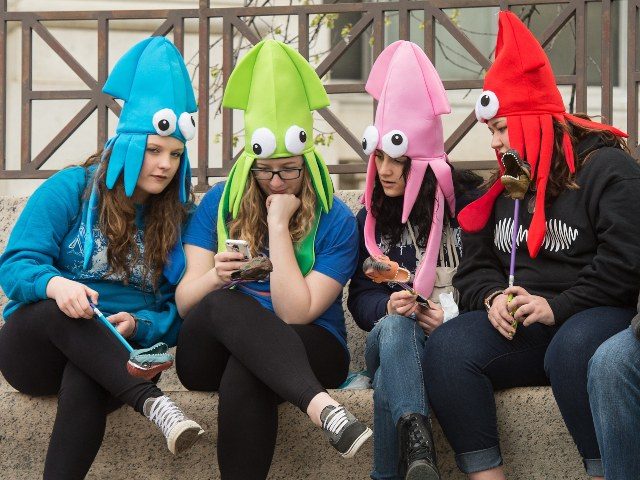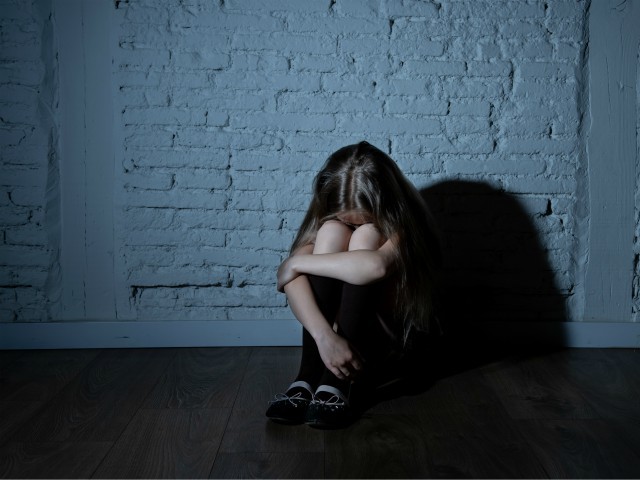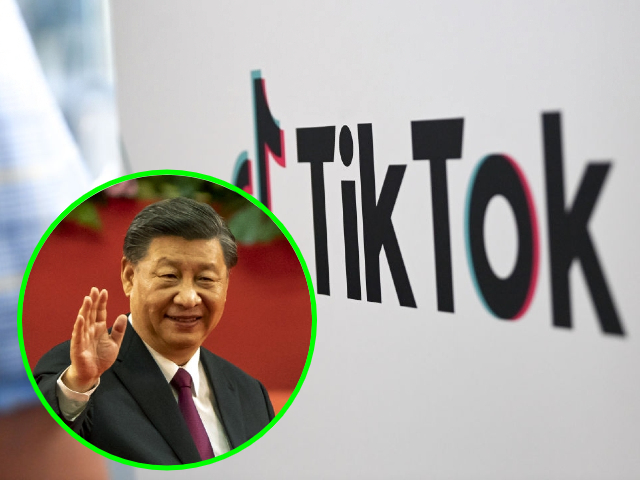A recent study by psychologists shows that the regular use of social media is linked to changes in the brains of teenagers. This is especially troubling in light of the fact that the most popular social media platform for American teenagers is China’s TikTok, which pushes harmful messaging on teens as soon as they sign up for an account.
The effects of social media on children’s developing brains has long been a topic of concern for parents and policymakers. Now, the New York Times reports that a new study by neuroscientists at the University of North Carolina has shed some light on the issue, using brain scans to track the effects of social media use on middle school students aged 12 to 15, a period of rapid brain development.
The study found that children who regularly checked their social media feed at around age 12 showed increased sensitivity to social rewards from their peers over time. In contrast, teenagers with less engagement in social media showed a declining interest in social rewards. While the study cannot make definitive causal claims about the effects of social media on the brain, the authors suggest that the findings could potentially have long-term consequences well into adulthood.
The study was conducted on a diverse group of 169 students from a middle school in rural North Carolina. The students were split into three groups based on their reported frequency of social media use: habitual (checking feeds 15 or more times a day), moderate (checking 1-14 times a day), and nonhabitual (checking less than once a day). The subjects received full brain scans at approximately one-year intervals as they played a game that displayed rewards and punishment in the form of smiling or scowling peers.
While playing the game, habitual social media users showed increased activation in three areas of the brain:
- Reward-processing circuits, which also respond to experiences such as winning money or risk-taking behavior.
- Brain regions that determine what stands out in the environment.
- The prefrontal cortex, which helps with regulation and control.
These changes in brain function suggest that teenagers who frequently check their social media feeds may become “hypersensitive to feedback from their peers,” according to Dr. Eva Telzer, an associate professor of psychology and neuroscience at the University of North Carolina and one of the authors of the study.
However, whether these brain changes are beneficial or harmful is not yet clear. On the one hand, increased social sensitivity could be seen as adaptive, indicating that the teenagers are learning to connect with others. On the other hand, increased social sensitivity may lead to other issues, such as social anxiety and depression.
Breitbart News has previously reported that apps such as TikTok have been found to be harmful to teen mental health. In December, Breitbart News reported that a study by the Center for Countering Digital Hate (CCDH) revealed that TikTok’s algorithms are recommending self-harm and eating disorder content to new users shortly after they join the platform.
The study involved researchers creating TikTok accounts and posing as 13-year-old users interested in body image and mental health content. The results showed that within just 2.6 minutes of joining the app, TikTok’s algorithms began to recommend suicidal content to the new accounts. Additionally, eating disorder content was recommended within as little as eight minutes.
Breitbart News has reported extensively on the dangers of TikTok. In a column advocating for the Chinese app’s banning from the United States, reporter Alana Mastrangelo wrote:
The Danger for Kids and Teens
China is a hostile foreign country that is using TikTok to get U.S. teens to participate in trends that are dangerous and life-threatening.
In September, the FDA warned parents of a deadly new TikTok challenge that involves children cooking chicken in NyQuil, “presumably to eat.” The trend on the China-owned app was just the latest example of a dangerous stunt spread to young Americans.
Another challenge seen on TikTok in 2020 involved urging users to take large doses of the allergy medication Benadryl (diphenhydramine) to induce hallucinations. The challenge resulted in reports of teens being rushed to the hospital, and in some cases, dying.
Last year, school officials spoke out against TikTok’s “bathroom challenge,” which encouraged students to vandalize school restrooms. The challenge, also known as “devious licks,” involved videos depicting vandalism of trophy cases, hallways, and classrooms, as well as theft of fire extinguishers, school signs, and other property.
To add insult to injury, the Chinese app also rewards U.S. users by making them go viral or become “TikTok famous” for behaving foolishly. On one hand, this is accomplished by posting frivolous dance videos, but on the other, it is for popularizing dangerous trends or posting sexual content.
TikTok’s algorithm also makes it easier for teenagers to go viral and gain internet fame when they post sexualized videos. This has also taken a toll on teens’ mental health, according to mental health professionals. And the Chinese company seemingly tailors its algorithms to have different impacts on various communities. For example, a lawsuit filed in July alleges that TikTok pushes especially violent content on black teenagers.
Unlike other social media platforms — such as Facebook, Instagram, YouTube, and Twitter — TikTok makes it much easier and faster for teens to obtain what they perceive as “fame” on the app. This fame can come with a terrible price.
Read more at the New York Times here.
Lucas Nolan is a reporter for Breitbart News covering issues of free speech and online censorship. Follow him on Twitter @LucasNolan



COMMENTS
Please let us know if you're having issues with commenting.